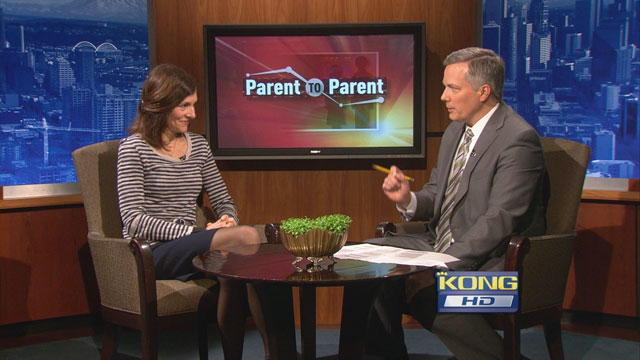We all want our kids to be successful in life. We worry about things like their schools, their grades and even how smart they are. But it s also important to help our kids develop self control. Dr. Laura Kastner, author of Wise Minded Parenting: Mastering the Seven Essentials for Raising Successful Tweens and Teens, gives us more information.
Why is the development of self-control in children such a hot topic right now?
There was a new research study conducted by Terrie Moffitt and Avshalom Caspi at Duke that showed that compared to IQ scores, self-control among children was twice as powerful in predicting success in adulthood. The researchers measured self-control and IQ and many other characteristics among young children, followed them for thirty years, and looked at levels of educational attainment, income, job stability, relationship stability and health. Self-control was the most powerful predictor of these positive outcomes. IQ is still very important, but even when controlling for the influence of income and education among the parents, self-control was twice as predictive of success.
How do experts define self-control?
Self-control is the ability to control one's emotions and behavior to meet a goal, obtain a reward or avoid a negative outcome. Psychologists often call it self-regulation, and it is considered one of the key features of our executive functioning, which we consider our CEO. It helps us run the business of US: it helps us stay focused on our goals, inhibit impulses, stay on track, deal with distractions, cope with fatigue and boredom, and ultimately reach our goals. We all know people who are super-smart who didn't necessarily amount to much in their work or family lives. People need to develop strong self-control skills if they are going to be successful in any realm.
How to parents help build strengths like self-control?
From toddlerhood on, parents are helping to develop this important skill by expecting children to increasingly delay gratification, follow rules, budget with their allowances, take on responsibilities and comply with routines. First, we have young children pull their blankets up on their bed, pour kibble for the cat, put their toys away and withstand the impulse to hit their brothers and tantrum when they don't like something. Then, by sometime in middle school, we expect them to complete their whole morning routine without reminders and hopefully have the ability to put feelings into words instead of throwing tantrums. And the self-control is also hard at work when kids take charge of their homework, more complex chores, acceptable conduct at school, and so forth. Step by step, we set up the structure and supervision they need in a process called scaffolding -assisting, coaching, supporting-and remove the structure when they have the self-control to complete goals without us. This whole parenting process is best done with positive support-not nagging, lectures or harsh punishments, acceptance that messy feelings and behaviors will abound (kids are works in progress!), and tolerance for the normal moodiness and drive for excitement during adolescence.
Tips for parents who want to strengthen self-control:
- Adjust your goals:Adjust them according to your child's temperament, track record and age. Some kids are shy and need to work on controlling their fears in new situations, like camps and field trips. Some kids are high-energy risk-takers and need to work on controlling their impulses. Kids have different challenges with self-regulation-the important thing is they get exercise for their self-control muscles but not overwhelmed.
- Find organized activities:Choose the ones that can stretch your child's capacities for self-control. Especially with kids in middle and high school, organized activities require all sorts of self-control. They build character, which is the endgame of self-control!
- Model self-control: Make sure your own emotions are under control. Parents need to be self-controlled if they are going pull off this never-ending quest to set up structures for building their kids' self-control. And that includes controlling our emotions.
- Stay positive:Ignore low-level messy behaviors. Kids learn best with positive approaches, not lectures and punishments.
- Rest:Exercising any muscles can get tiring -including self-control and practicing our healthy habits. We also need rest and fun in our family routines!


